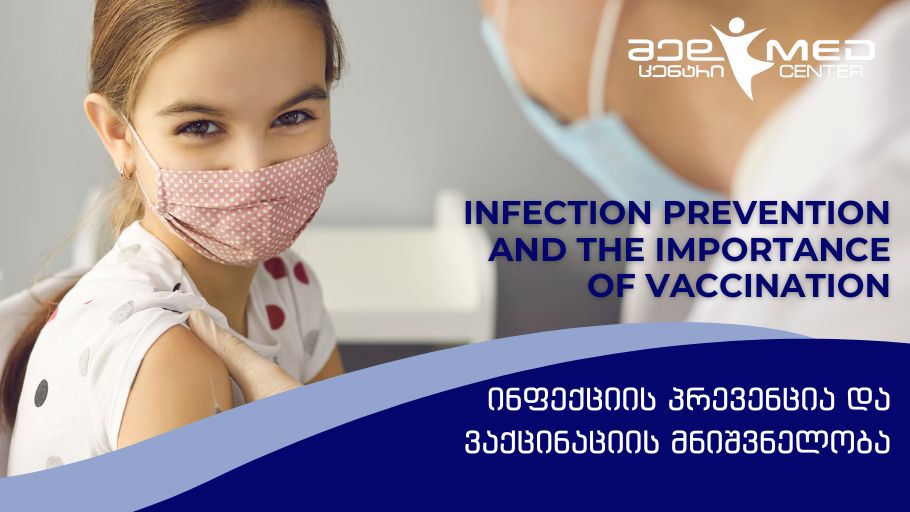Infection Prevention and the Importance of Vaccination

Around us, in nature, there are many invisible organisms that can cause various diseases, known as microorganisms, such as viruses and bacteria. Historically, the world remembers numerous epidemics and pandemics that have affected populations. However, in 1796, the English scientist Edward Jenner invented the vaccine against smallpox, marking the beginning of a new era and bringing new hopes that infectious diseases could be managed and prevented.
Thus, the era of vaccination was born, saving billions of people from disability and death. Vaccination is the greatest achievement of science. Preventive vaccination, such as the flu shot, is carried out using a vaccine. A vaccine is a biological preparation that, when introduced into the human body, triggers an immune response and the formation of immunity to the disease it targets. Vaccines contain a highly weakened pathogen (bacteria or virus) or a part of it, called an antigen. When the antigen enters the human body, an immune response begins, and the immune system recognizes the foreign body (antigen) and produces antibodies to it, thus forming immunity. Later, when the vaccinated person encounters the bacteria or virus, the immune system will recognize it and respond rapidly by releasing antibodies that are already prepared for the familiar antigen. In such cases, the disease either does not progress and does not manifest, or it occurs in a mild form, without leading to fatal outcomes or disability. How the disease manifests in a vaccinated individual, whether it will be detected at all or will be mild, depends on the person’s immune system.
In Georgia, particularly in Adjara, there was an outbreak of diphtheria in the 1990s, leading to catastrophic consequences and many deaths. This outbreak was linked to delayed vaccinations in previous years. Part of the population avoided vaccination, and the socio-economic situation of the country at that time hindered comprehensive vaccination efforts.
Preventive vaccination protects each of us, and by being vaccinated, we also protect those around us, as the risk of transmission among vaccinated individuals is minimal.
Here is a brief guide to the national immunization schedule in Georgia, indicating the ages at which children should be vaccinated and the diseases the vaccines protect against:
- Within 12 hours of birth: Hepatitis B.
- 0-5 days: BCG vaccine against tuberculosis.
- 2 months: Diphtheria, tetanus, pertussis, hepatitis B, Haemophilus influenzae type B, poliomyelitis, pneumococcal infection, rotavirus infection.
- 3 months: Diphtheria, tetanus, pertussis, hepatitis B, Haemophilus influenzae type B, poliomyelitis, pneumococcal infection, rotavirus infection.
- 4 months: Diphtheria, tetanus, pertussis, hepatitis B, Haemophilus influenzae type B, poliomyelitis.
- 12 months (1 year): Pneumococcal infection, measles, rubella, mumps.
- 18 months (1 year and 6 months): Diphtheria, tetanus, pertussis, poliomyelitis.
- 5 years: Measles, rubella, mumps, poliomyelitis, diphtheria, tetanus.
- 10-12 years: Human papillomavirus vaccine for girls.
- 14 years: Tetanus, diphtheria.
All the above-mentioned diseases are particularly dangerous and can lead to severe consequences, disability, or death in unvaccinated individuals. In our country, their prevalence has been minimized thanks to a high level of preventive vaccinations.
Preventive vaccination is a powerful tool for protecting against severe diseases and their complications. By following the vaccination schedule and maintaining high vaccination coverage, we can prevent many diseases and preserve the health not only of ourselves but also of those around us.
Doctor: pediatrician, family doctor, Doctor of Sciences, Professor.





 ქართული
ქართული Русский
Русский